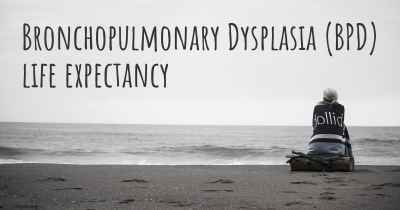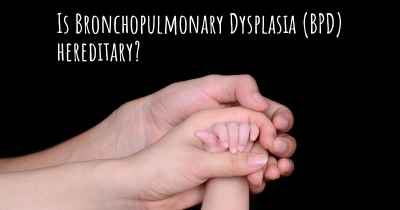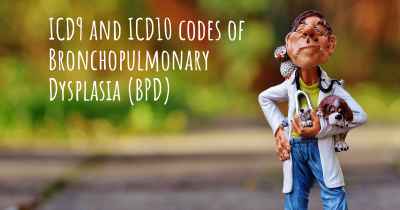Which are the causes of Bronchopulmonary Dysplasia (BPD)?
See some of the causes of Bronchopulmonary Dysplasia (BPD) according to people who have experience in Bronchopulmonary Dysplasia (BPD)

Bronchopulmonary Dysplasia (BPD) is a chronic lung disease that primarily affects premature infants, especially those born before 28 weeks of gestation or with very low birth weight. It is characterized by abnormal development of the lungs and airways, leading to long-term respiratory problems. While the exact causes of BPD are not fully understood, several factors have been identified as potential contributors to its development.
Premature Birth: Prematurity is the most significant risk factor for developing BPD. The lungs of premature infants are not fully developed, and they often require mechanical ventilation or supplemental oxygen to support their breathing. The immature lungs are more susceptible to injury, inflammation, and damage, which can lead to the development of BPD.
Respiratory Distress Syndrome (RDS): Premature infants are at a higher risk of developing respiratory distress syndrome, a condition characterized by insufficient production of surfactant, a substance that helps keep the air sacs in the lungs open. RDS often necessitates mechanical ventilation, which can contribute to lung injury and increase the likelihood of BPD.
Oxygen Toxicity: While supplemental oxygen is essential for premature infants with respiratory difficulties, prolonged exposure to high levels of oxygen can be damaging to the developing lungs. Oxygen toxicity can cause inflammation, oxidative stress, and injury to the delicate lung tissue, potentially leading to the development of BPD.
Infection and Inflammation: Infections, particularly those affecting the lungs, can increase the risk of BPD. Premature infants are more susceptible to infections due to their immature immune systems. Inflammation caused by infections or other factors can further damage the developing lungs and contribute to the development of BPD.
Genetic Factors: Certain genetic factors may predispose some infants to an increased risk of developing BPD. Genetic variations related to lung development, inflammation, and antioxidant defense mechanisms have been implicated in the development and severity of BPD. However, more research is needed to fully understand the genetic contributions to this condition.
Maternal Factors: Maternal factors, such as smoking during pregnancy, poor nutrition, and certain medical conditions, can increase the risk of premature birth and subsequently contribute to the development of BPD in the infant. Maternal infections and exposure to environmental toxins may also play a role.
It is important to note that BPD is a multifactorial condition, meaning that it is likely caused by a combination of these factors rather than a single cause. The interplay between prematurity, lung immaturity, mechanical ventilation, oxygen therapy, infections, inflammation, and genetic predispositions all contribute to the development and severity of BPD.
Posted Sep 28, 2017 by Jules 3450








